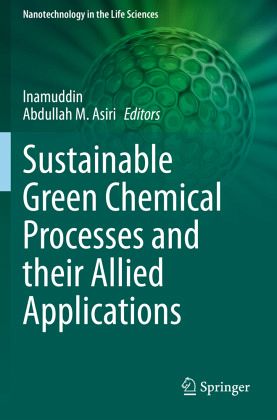
Sustainable Green Chemical Processes and their Allied Applications
Versandkostenfrei!
Versandfertig in 6-10 Tagen
129,99 €
inkl. MwSt.

PAYBACK Punkte
65 °P sammeln!
Urbanization, industrialization, and unethical agricultural practices have considerably negative effects on the environment, flora, fauna, and the health and safety of humanity. Over the last decade, green chemistry research has focused on discovering and utilizing safer, more environmentally friendly processes to synthesize products like organic compounds, inorganic compounds, medicines, proteins, enzymes, and food supplements. These green processes exist in other interdisciplinary fields of science and technology, like chemistry, physics, biology, and biotechnology, Still the majority of pro...
Urbanization, industrialization, and unethical agricultural practices have considerably negative effects on the environment, flora, fauna, and the health and safety of humanity. Over the last decade, green chemistry research has focused on discovering and utilizing safer, more environmentally friendly processes to synthesize products like organic compounds, inorganic compounds, medicines, proteins, enzymes, and food supplements. These green processes exist in other interdisciplinary fields of science and technology, like chemistry, physics, biology, and biotechnology, Still the majority of processes in these fields use and generate toxic raw materials, resulting in techniques and byproducts which damage the environment. Green chemistry principles, alternatively, consider preventing waste generation altogether, the atom economy, using less toxic raw materials and solvents, and opting for reducing environmentally damaging byproducts through energy efficiency.
Green chemistry is, therefore, the most important field relating to the sustainable development of resources without harmfully impacting the environment. This book provides in-depth research on the use of green chemistry principles for a number of applications.
Green chemistry is, therefore, the most important field relating to the sustainable development of resources without harmfully impacting the environment. This book provides in-depth research on the use of green chemistry principles for a number of applications.



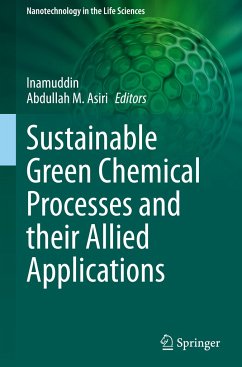


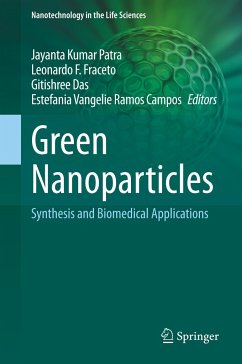
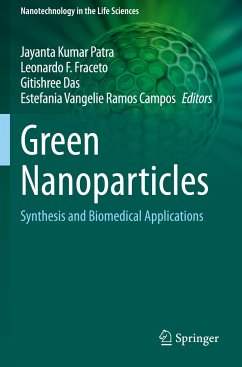


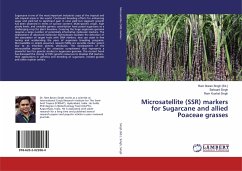
![Dowling's Grain Code [microform]: Compiled for the Use of the Grain, Milling and Produce, and Allied Trades Cover Dowling's Grain Code [microform]: Compiled for the Use of the Grain, Milling and Produce, and Allied Trades](https://bilder.buecher.de/produkte/65/65516/65516672n.jpg)
